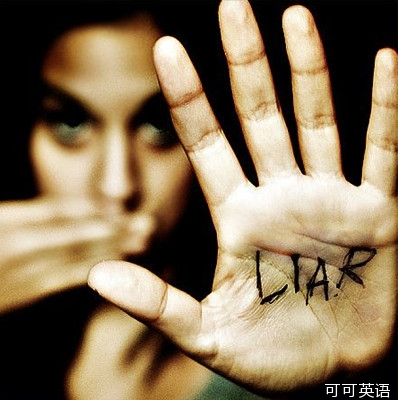“Lots of us are able to cheat a little bit and still think of ourselves as honest people.”
"許多人或多或少會欺騙別人,但仍自認為是個誠實的人。"
Dan Ariely is a professor of behavior economics at Duke University. His latest book, The Honest Truth About Dishonesty, explains how creativity makes us better liars—even to ourselves.
丹·艾瑞里是杜克大學(xué)行為經(jīng)濟學(xué)的教授。他最近出版的書籍《The Honest Truth About Dishonesty》解釋了為何創(chuàng)造力使人們更善于撒謊,甚至是更好地自欺欺人。

“Dishonesty is all about the small acts we can take and then think, no, this not real cheating. So if you think that the main mechanism is rationalization, then what you come up with, and that's what we find, is that we're basically trying to balance feeling good about ourselves. On the one hand we get some satisfaction, some utility from thinking of ourselves as honest, moral, wonderful people. On the other hand we try to benefit from cheating.
“不誠實都是善意的小舉動,對,這不是真正的欺騙。所以如果你認為合理化才是主要的機制,那么你得平衡自己的說法和別人發(fā)現(xiàn)的事實,以達到自我感覺良好的目的。一方面人們傾向于認為自己很誠實、有道德、很了不起,從這樣的想法中能獲得滿足感。另一方面我們試圖從欺騙中獲益。”
“So rationalization is what we allows you to live with some cheating and not pay a cost in terms of your own view of yourself.
“那么合理化就是即允許你欺騙別人,但卻絲毫不影響自己對自己的看法。”
“What kind of people would be able to rationalize better than other people? Better storytellers, right? Creative people, right? Because if you're creative, you find more ways to cheat and still yourself a story about why this is okay.”
“哪一類人能夠比別人更好地將謊言合理化?更會講故事的人,對嗎?富有創(chuàng)意的人,對嗎?因為如果你有創(chuàng)意,那么你會想到更多欺騙的方式,只要你能圓謊就行。”
原文譯文屬可可原創(chuàng),未經(jīng)允許請勿轉(zhuǎn)載!













